- Facebook Group
- Facebook Page
- e-SLM vesion2


RPMS-PPST Resources Downloads
- Anecdotal Record, Learner’s Needs, Progress and Achievement Cardex
- Call Parent and Home Visit Forms
- e-IPCRF Official Copy
- Electronic Self-Assessment Tool (e-SAT)
- Individual Plan for Professional Development (IPPD)
- IPCRF-DEVELOPMENT PLAN
- Mid-year Review Form (MRF)
- National Orientation Materials for RPMS Multi-Year RPMS-PPST and Use of Electronic IPCRF for Teachers
- Performance Monitoring and Coaching Form
- Reflections, Journal Entry on Learner-Centered Teaching Philosophy
- RPMS Guidelines
- RPMS Portfolio with MOVs
- RPMS Tools and Forms
Most Downloaded
- Daily Time Record (eDTR)
- Electronic Class Record
- Enhanced BEEF
- Enrollment Form 2022-2023
- Learning Activity Sheets
- New Sick Leave Form 6
- Self-Learning Modules (SLM)
- Teachers Guide 2021-22
- Your 700+ PowerPoint Templates
Suggested Titles for Action Research related to effective classroom management.
Suggested titles for action research related to effective classroom management. .
Here are a few possible action research titles related to effective classroom management. You may email us if you wish to know more about the presented topics - the introduction, abstract, background, rationale, and other parts of each title. Guide questions and sample questionnaires are also available.
Parts of the Action Research Proposal should be related to and supportive of each other and appropriate for the research question(s).
The following are broad ideas from which potential Action Research topics can be derived for exploration concerning your practice. •attendance •inclusion •school climate •behavior/discipline •media influence •student achievement •collaboration •mentoring •technology •counseling programs •motivation •teacher attrition •dropout prevention •parental involvement • team teaching • extracurricular participation •needs of at-risk students •professionaldevelopment
These topics were provided by DepEd Tambayan Experts. We guarantee that these titles are not yet utilized, and we can provide you original and plagiarism-free manuscripts as your guides or basis. (These are not for sale. Do not sell. For educational purposes only.)
- Comparing the Effectiveness of Different Classroom Management Strategies on Student Engagement and Learning Outcomes - DOWNLOAD Action Research Proposal
- "Exploring the Impact of Teacher Language on Classroom Management and Student Behavior" - DOWNLOAD Action Research Proposal
- "Using Self-Regulation Techniques to Enhance Student Self-Control and Classroom Management" - DOWNLOAD Action Research Proposal
- "Investigating the Effectiveness of Restorative Justice Practices in Addressing Classroom Misbehavior" - Download Link is being updated (please refresh or come back later)
- "Comparing the Effectiveness of Different Classroom Management Strategies on Student Engagement and Learning Outcomes"- Download Link is being updated (please refresh or come back later)
- "The Role of Classroom Environment in Facilitating Effective Classroom Management" - Download Link is being updated (please refresh or come back later)
- "Examining the Impact of Teacher Emotional Intelligence on Classroom Management and Student Behavior"- Download Link is being updated (please refresh or come back later)
- "Implementing Mindfulness Practices to Enhance Classroom Management and Student Well-being"- Download Link is being updated (please refresh or come back later)
- "Investigating the Impact of Student Ownership of Learning on Classroom Management and Student Motivation"- Download Link is being updated (please refresh or come back later)
- "The Relationship between Teacher-Student Relationships and Effective Classroom Management".- Download Link is being updated (please refresh or come back later)
- "Exploring the Effectiveness of Technology-Based Classroom Management Strategies on Student Behavior and Engagement"- Download Link is being updated (please refresh or come back later)
- "Examining the Impact of Culturally Responsive Classroom Management Practices on Student Achievement and Well-being"- Download Link is being updated (please refresh or come back later)
- "Implementing Peer-Mediated Interventions to Improve Classroom Management and Social Skills in Students with Disabilities"- Download Link is being updated (please refresh or come back later)
- "The Role of Teacher Self-Efficacy in Facilitating Effective Classroom Management and Student Behavior"- Download Link is being updated (please refresh or come back later)
- "Investigating the Use of Positive Framing and Positive Reinforcement in Promoting Pro-Social Behavior and Effective Classroom Management"- Download Link is being updated (please refresh or come back later)
- "Using Differentiated Instruction to Improve Classroom Management and Student Learning Outcomes"- Download Link is being updated (please refresh or come back later)
- "The Impact of Classroom Seating Arrangements on Student Behavior and Classroom Management"- Download Link is being updated (please refresh or come back later)
- "Examining the Role of Parental Involvement in Effective Classroom Management and Student Achievement"- Download Link is being updated (please refresh or come back later)
- "Implementing Universal Design for Learning (UDL) Principles to Enhance Classroom Management and Student Engagement"- Download Link is being updated (please refresh or come back later)
- "Investigating the Effectiveness of Classroom Management Professional Development on Teacher Practices and Student Behavior".- Download Link is being updated (please refresh or come back later)
- "The Impact of Classroom Rules and Procedures on Classroom Management and Student Behavior"- Download Link is being updated (please refresh or come back later)
- "Investigating the Use of Social and Emotional Learning (SEL) Strategies in Classroom Management"- Download Link is being updated (please refresh or come back later)
- "The Role of Teacher Feedback in Enhancing Classroom Management and Student Motivation"
- "Implementing Collaborative Learning Strategies to Improve Classroom Management and Student Achievement"
- "Examining the Effectiveness of Multi-Tiered Systems of Support (MTSS) in Addressing Classroom Behavior and Academic Needs".
- "Exploring the Effectiveness of Mindful Discipline in Classroom Management and Student Well-being"
- "Investigating the Relationship between Classroom Management and Teacher Burnout"
- "The Impact of Teacher Expectations on Classroom Management and Student Performance"
- "Examining the Effectiveness of Nonverbal Communication in Classroom Management"
- "Implementing Time Management Strategies to Improve Classroom Management and Student Learning"
- "The Role of Classroom Management in Facilitating Intrinsic Motivation in Students"
- "Investigating the Effectiveness of Restorative Practices in Addressing Bullying and Other Forms of Misbehavior"
- "The Impact of Classroom Management on Student Attendance and Punctuality"
- "Using Gamification Techniques to Enhance Classroom Management and Student Engagement"
- "Examining the Relationship between Classroom Management and Student Perceptions of Teacher Credibility".
- "The Role of Teacher Autonomy in Effective Classroom Management and Student Learning Outcomes"
- "Investigating the Effectiveness of Peer Feedback in Classroom Management and Student Behavior"
- "Using Positive Peer Pressure to Promote Classroom Management and Pro-Social Behavior"
- "Examining the Impact of Teacher Mindset on Classroom Management and Student Behavior"
- "Implementing Cognitive-Behavioral Therapy (CBT) Techniques to Improve Classroom Management and Student Well-being"
- "The Relationship between Classroom Management and Academic Achievement in At-Risk Students"
- "Investigating the Effectiveness of Trauma-Informed Classroom Management Practices in Supporting Students with Trauma Histories"
- "The Impact of Teacher Gender on Classroom Management and Student Behavior"
- "Using Mind Maps to Enhance Classroom Management and Student Learning"
- "Examining the Role of Student Choice in Effective Classroom Management and Student Motivation".
- "The Relationship between Classroom Management and Student Creativity"
- "Investigating the Impact of Classroom Management on Student Self-Regulation and Executive Functioning"
- "The Effectiveness of Positive Peer Relationships in Classroom Management and Student Engagement"
- "Examining the Use of Humor in Classroom Management and Student Behavior"
- "Implementing Differentiated Instruction to Enhance Classroom Management and Student Learning"
- "The Role of Teacher Reflection in Effective Classroom Management and Professional Development"
- "Investigating the Effectiveness of Collaborative Problem-Solving in Classroom Management and Student Behavior"
- "Using Mindfulness-Based Stress Reduction (MBSR) Techniques to Improve Classroom Management and Teacher Well-being"
- "The Impact of Classroom Management on Student Resilience and Coping Skills"
- "Examining the Effectiveness of Video Modeling in Classroom Management and Student Behavior".
- Investigating the Relationship between Classroom Management and Student Emotional Intelligence"
- "The Impact of Classroom Management on Student Academic Self-Efficacy and Achievement"
- "Using Collaborative Learning Strategies to Enhance Classroom Management and Social Skills in Students with Autism Spectrum Disorder"
- "The Role of Teacher Empathy in Effective Classroom Management and Student Behavior"
- "Examining the Effectiveness of Cooperative Learning in Classroom Management and Student Engagement"
- "Implementing Universal Design for Learning (UDL) Principles to Address Classroom Management Challenges in Inclusive Settings"
- "The Impact of Classroom Management on Student Perceptions of School Climate"
- "Investigating the Effectiveness of Mindfulness-Based Classroom Management Techniques on Teacher Stress and Burnout"
- "Using Social Network Analysis to Understand the Relationship between Classroom Management and Student Achievement"
- "Examining the Effectiveness of Technology-Based Classroom Management Interventions on Student Behavior and Academic Performance".
- The Impact of Classroom Management on Teacher Job Satisfaction and Retention"
- "Investigating the Effectiveness of Positive Behavior Interventions and Supports (PBIS) in Classroom Management and Student Behavior"
- "Using Peer Mentoring to Improve Classroom Management and Social Skills in Students with Emotional and Behavioral Disorders"
- "The Role of Teacher Mindfulness in Effective Classroom Management and Student Well-being"
- "Examining the Relationship between Classroom Management and Student Cultural Responsiveness"
- "Implementing Trauma-Sensitive Classroom Management Strategies to Support Students with Adverse Childhood Experiences (ACEs)"
- "The Impact of Classroom Management on Student Perceptions of Teacher Caring"
- "Investigating the Effectiveness of Social-Emotional Learning (SEL) Interventions in Classroom Management and Student Behavior"
- "Using Positive Reinforcement to Enhance Classroom Management and Student Motivation"
- "Examining the Relationship between Classroom Management and Student Executive Functioning Skills".
- "The Impact of Classroom Management on Student Academic Mindsets and Persistence"
- "Investigating the Relationship between Classroom Management and Student Self-Determination"
- "Using Growth Mindset Interventions to Improve Classroom Management and Student Engagement"
- "The Role of Teacher Feedback in Effective Classroom Management and Student Learning Outcomes"
- "Examining the Effectiveness of School-wide Positive Behavior Interventions and Supports (SW-PBIS) in Classroom Management and Student Behavior"
- "Implementing Culturally Responsive Classroom Management Strategies to Support Multilingual Learners"
- "The Impact of Classroom Management on Student Motivation and Academic Achievement in High-Poverty Schools"
- "Investigating the Effectiveness of Classroom Management Interventions on Students with Attention Deficit Hyperactivity Disorder (ADHD)"
- "Using Restorative Justice Practices to Address Classroom Management Challenges and Build Positive Relationships with Students"
- "Examining the Relationship between Classroom Management and Student Social-Emotional Learning Outcomes".
- "The Impact of Classroom Management on Student Academic Confidence and Risk-Taking Behaviors"
- "Investigating the Relationship between Classroom Management and Student Resilience"
- "Using Peer Tutoring to Enhance Classroom Management and Academic Achievement in High School Students"
- "The Role of Teacher-Student Relationships in Effective Classroom Management and Student Well-being"
- "Examining the Effectiveness of Mindfulness-Based Classroom Management Strategies on Teacher-Student Interactions"
- "Implementing Cooperative Discipline Strategies to Promote Effective Classroom Management and Student Responsibility"
- "The Impact of Classroom Management on Student Perceptions of Teacher Fairness"
- "Investigating the Effectiveness of Universal Design for Learning (UDL) in Addressing Classroom Management Challenges for Students with Disabilities"
- "Using Differentiated Instruction to Improve Classroom Management and Student Engagement in Heterogeneous Classrooms"
- "Examining the Relationship between Classroom Management and Student Emotional Regulation"
- "The Impact of Classroom Management on Student Attendance and Academic Performance"
- "Investigating the Effectiveness of Conflict Resolution Strategies in Classroom Management and Student Collaboration"
- "Using Brain-Based Learning Strategies to Enhance Classroom Management and Student Attention Span"

What is the Problem of number 1,2,3 and possible solution and tool to be used in this titles?
Post a Comment
Social Counter
- facebook count=667 K Follow
Featured Post
E-ipcrf for sy 2023-2024 official.
e-IPCRF for SY 2023-2024 Official The Department of Education (DepEd) has released the official electronic Individual Performance Commitment...
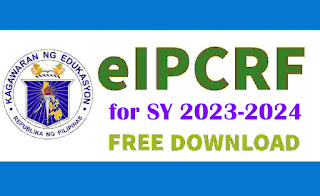
Popular Posts
._salary_.png)
- Pres. Marcos Jr. to sign into Law P10,000 Annual Teaching Supplies Allowance for Public School Teachers
- Sample Complaint Letter Regarding Violation of Mandatory 30-Day Vacation Directive for Teachers

- RPMS Made Easy: Free & Premium Portfolio Templates
DOWNLOADABLE RESOURCES
- Budget of Work
- Curriculum Guide
- Detailed Lesson Plan
- enhanced enrollment form
- Enhanced TIP Course Books
- learning activity sheet
- Modules with answer key
- Quarterly Assessment
- Reading Materials
- Remedial Reading
- Rubric Assessment Tools
- school calendar 2021-2022
- school calendar 2022-2023
- Self-Learning Modules
- Summative Test
LATEST ISSUANCES
Deped updates, teacher resources.

Action Research
404 Not found
- Lesson Plans
- Presentations
- Test Questions
- Privacy Policy

Parts of an Action Research and How to Conduct
What action research is and is not, the action research process.
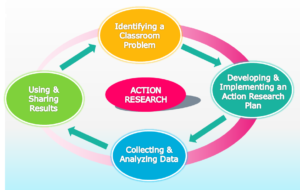
INITIAL STEPS
IN CONDUCTING AN
ACTION RESEARCH
STEP 1: MAKING THE COMMITMENT TO INQUIRY
- A professional stance
- A way of learning about your classroom
- A way of learning about yourself as a teacher
- Using the 5whQ
- Possible questions:
Why do the boys in my class….?
What happens when I …..?
I wonder what happens when I …..?
Starting points to identify an issue you would like to research (Caro-Bruce, 2000):
Sometimes it helps to use a variety of questions such as:
I would like to improve ____________________________________
I am perplexed by________________________________________
I am really curious about __________________________________
Something I think would really make a difference is ___________
Something I would like to change is _______________________
What happens to student learning in my classroom when I _____?
How can I implement ____________________________________?
How can I improve ______________________________________?
Step 2: Read , Research, Reflect
- Framing a good question
Avoid yes or no questions
Avoid questions to which you already know the answer
- A good question is
free of educational jargons,
use simple everyday words ,
do not prejudge the result
Characteristics of Good Research Questions
A good classroom action research question should:
- Be meaningful, compelling, and important to you as a teacher-researcher.
- Be manageable and within your sphere of influence.
- Be important for learners.
- Benefits your students by informing your teaching and the curriculum, by providing new insights about students and their learning , by broadening and deepening your perspectives, or by improving practice.
- Lead to taking an action
- What happens to the quality of student writing when I implement peer editing in my English classes?
- How does the use of computers affect the student writing process in my class?
- What happens to student understanding of specific geometrical concepts when I incorporate exploratory exercises into the teaching of geometry in my classroom?
- What happens to students’ academic performance in the classrooms when the school observes the heterogeneous system during cooperative learning activities?
Conducting a Literature Review (Holly, Arhar, and Kasten ,2005)
- Read broadly and generally, at first, then read more narrowly.
- When you are researching a novel topic that seems to have few resources, look for related topics and then synthesize them.
- Consult primary resources as possible.
- Ask for help.
- Read enough to get started, but not so much that you become too exhausted to conduct your study .
- Read with a critical eye.
Step 3: Make changes or try a new idea
What are you going to do?
How will you measure the result?
Identifying Data Sources
- Why are we collecting the data?
- How are the data related to the research question?
- What kind of data will yield the best information? What counts as data?
- What data will we collect? How much data will we collect? Will data be easy or difficult to collect?
- Who will be using the data?
- What data sources will we use to collect information?
- How will the data be collected and analyzed? How systematic will data collection be?
- How will the data be organized? How will the data be displayed?
- What criteria will be used to analyze the data?
- How will the data be recorded and shared?
Step 4: Evaluate and Reflect
How can you be sure that your conclusions are fair and accurate?
Step 5: Improve or amend your practice
How will I do things differently?
What have you learned from the project?
Have your questions been answered?
How will you share the results?
Could they be useful to others in your school/ community?
Context and Rationale of the Study
- Cite Literature review
- What is the general situation/circumstance that makes you develop your research proposal?
- Why is this situation/ circumstance important?
- What do you intend to do?
- This is the aim of your study. This should also be embedded in your main arguments.
- The significance of your research
- Why is your study important?
- Who or what industry will benefit? Why?
- What would be the potential contribution or insight of my research?
ACTION RESEARCH QUESTIONS
Reflect on your experiences and identify the most critical problem that affects your students’ learning
PROPOSED INTERVENTION, INNOVATION, STRATEGY
- Explain the intervention and cite literature that supports /validate the strategy to be used
- The teacher-researchers will develop an M.A.D (Modified Awareness Design) Tool : Contextualized and Localized Instructional Learning Material with seven (7) lessons where its objectives are based on the least mastered skills. The development of the IM anchors the simplified process of ADDIE Model which follows: Phase I – Preparation, Phase II – Development, Phase III – Validation, Phase IV – Try-Out.
Methodology
* PARTICIPANTS – All Grade 8 OHSP learners will serve as the respondents of this study.
* SOURCES OF DATA/ INFORMATION – The following are the data collection tools which will be utilized this study:
- Research constructed questionnaire
- Pretest/ post-test
- Summative test scores
* DATA GATHERING METHODS
- In developing the instructional learning material, the concept of ADDIE will utilize where:
- Phase I- The preparation stage involves administering the pretest using the teacher-made test validated by the Grade 8 teachers. It will use to determine the least mastered skills of the Grade 8 OHSP learners. The contents and components of the MAD Tool: Contextualized and Localized IM will base on the result of the pretest.
- Phase II – The development stage involves the following phases; deciding on the format of the module, the process of writing the module and the initial revisions needed to improve the first draft of the module.
- Phase III – In the validation stage, English teachers (peers and experts) will ask to assess the module in terms of its objectives
Plans for Dissemination and Utilization
- The results of the study will be presented and disseminated during learning action cells , teacher’s quality circle , conference after the study and will be presented through infographics which will be part of the initiatives of the school administrators and the subject area teachers.
Teachers must continue to give frequent positive feedback that supports pupil’s beliefs that they can do well; ensure opportunities for student’s success by assigning tasks that are either too easy nor too difficult; help students find personal meaning and value of the material; and help students feel that they are valued members of a learning community.
Sample of Reflection
As I reflect on my first journey as a teacher-researcher, I breathe a sigh of relief. The light at the end of this long, winding tunnel is finally in sight. I found the process of conducting an action research project very complex and often overwhelming. However, at the same time, I found it to be extremely enlightening and rewarding.
It is self-perception about the study.
Best, J.W., & Kahn, J.V. (1998). Research in education (8th ed.). Needham Heights, MA: Allyn and Bacon.
Borg, W. (1981). Applying educational research: A practical guide for teachers. New York: Longman.
Brennan, M., & Williamson, P. (1981). Investigating learning in schools. Victoria, Australia: Deakin University Press.
Calhoun, E.F. (1994). How to use action research in the self-renewing school. Alexandria, VA: Association for Supervision and Curriculum Development.
Cochran-Smith, M., & Lytle, S.L. (Eds.). (1993). Inside/outside: Teacher research and knowledge. New York: Teachers College Press.
Corey, S.M. (1953). Action research to improve school practices. New York: Teachers College Press.
Johnson, B.M. (1995, Fall). Why conduct action research? Teaching and Change,1, 90-105.
source: SDO Las Pinas
RELATED ARTICLES MORE FROM AUTHOR
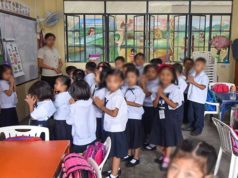
Senators press DepEd to Resume Face-to-face Classes
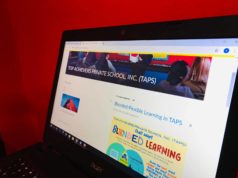
Globe prepares Top Achievers Private School Inc. for the new normal of digital learning

Duterte: No opening of classes without vaccine in the midst of pandemic
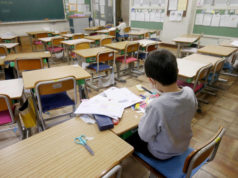
Navotas Mayor requested the Department of Education (DepEd) to pass all students for the school year amid the coronavirus outbreak
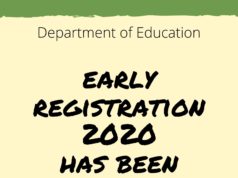
Early Registration for SY 2020-2021 has been moved to February 1

Brief History of the Philippines Folk Dances
Useful articles, list of passers: teachers board exam (let) march 2017 results.
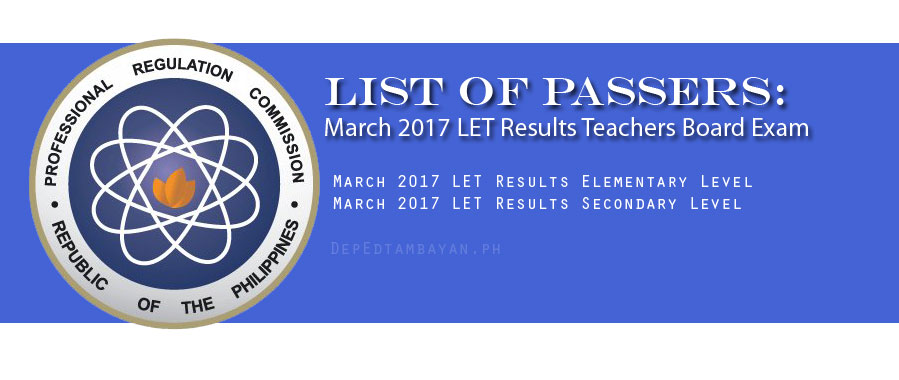
DepEd K to 12 Curriculum Guides Free Complete Downloads
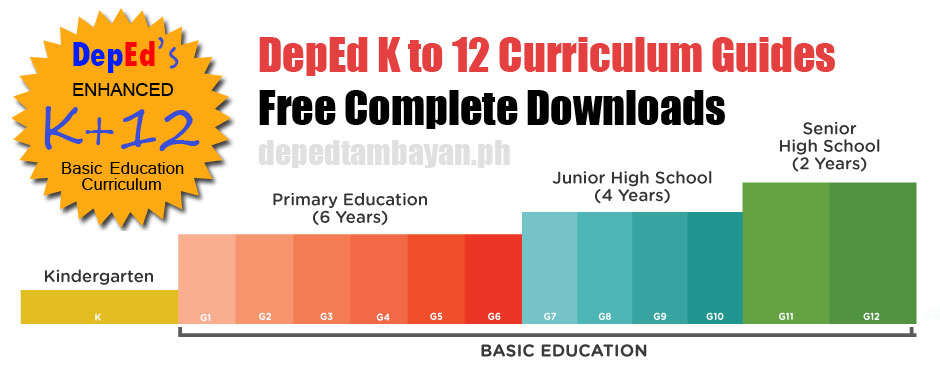
CS Form No. 212 Revised Personal Data Sheet Latest
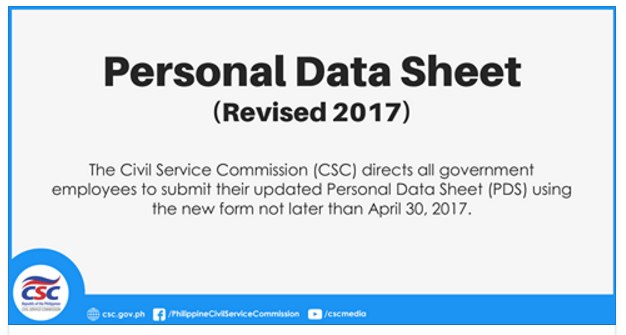

Sample Application Letter /Resume /CV for Teachers
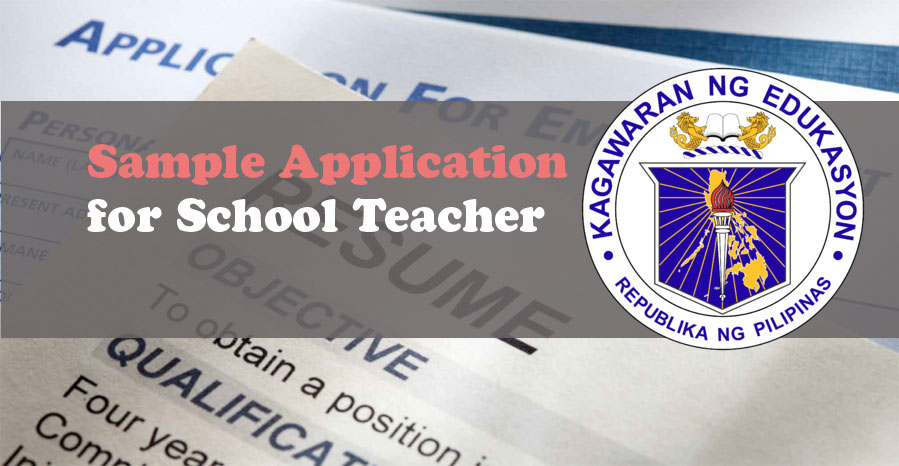
2017 Palarong Pambansa Organization, General Information and Technical Guidelines


- Privacy Policy
ACTION RESEARCH
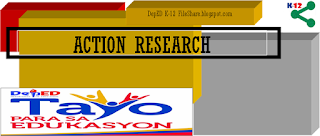
- Action Research: KINDERGARTEN
- Action Research: GRADE 1
- Action Research: GRADE 2
- Action Research: GRADE 3
- Action Research: GRADE 4
- Action Research: GRADE 5
- Action Research: GRADE 6
- Action Research: GRADE 7
- Action Research: GRADE 8
- Action Research: GRADE 9
- Action Research: GRADE 10
- Action Research: GRADE 11
- Action Research: SENIOR HIGH SCHOOL
- K-12 DAILY LESSON LOGS (DLL’S)
- K-12 LEARNERS MATERIALS (LM’S)
- K-12 INSTRUCTIONAL MATERIALS (IM'S)
- K-12 TEACHER’S GUIDES (TG’S)
- SCHOOL & GOVERNMENT FORMS
- K-12 ACTION RESEARCH
- THESIS PROPOSALS
- FULL THESIS PAPERS
- K-12 SUMMATIVE TEST
- K-12 PERIODICAL TEST
No comments:
Post a comment, what's new, search this blog, trending posts.

Popular Posts
- GRADE 6 POWER POINT PRESENTATION (PPT) FIRST QUARTER GRADE 6 POWER POINT PRESENTATION (PPT) In this page, you will find our shared Grade 6 Power Point Presentations. We are completing...
- NATIONAL ACHIEVEMENT TEST (NAT) REVIEWER FOR GRADE 6 Grade 6 National Achievement Test (NAT) Reviewer In this page, you will find our shared K-12 Grade 6 National Achievement Test (NAT) R...
- GRADE 5 POWER POINT PRESENTATION (PPT) FIRST QUARTER GRADE 5 POWER POINT PRESENTATION (PPT) In this page, you will find our shared Grade 5 Power Point Presentations. We are completing...
- Toggle Accessibility Statement
- Skip to Main Content
Republic of the Philippines Department of Education Region VIII - Eastern Visayas

JULY 05, 2022 RM 779, s. 2022 – List of Approved Action and Basic Research Proposals for the 2022 Basic Education Research (BERF) Grant


Want to create or adapt books like this? Learn more about how Pressbooks supports open publishing practices.
1 What is Action Research for Classroom Teachers?
ESSENTIAL QUESTIONS
- What is the nature of action research?
- How does action research develop in the classroom?
- What models of action research work best for your classroom?
- What are the epistemological, ontological, theoretical underpinnings of action research?
Educational research provides a vast landscape of knowledge on topics related to teaching and learning, curriculum and assessment, students’ cognitive and affective needs, cultural and socio-economic factors of schools, and many other factors considered viable to improving schools. Educational stakeholders rely on research to make informed decisions that ultimately affect the quality of schooling for their students. Accordingly, the purpose of educational research is to engage in disciplined inquiry to generate knowledge on topics significant to the students, teachers, administrators, schools, and other educational stakeholders. Just as the topics of educational research vary, so do the approaches to conducting educational research in the classroom. Your approach to research will be shaped by your context, your professional identity, and paradigm (set of beliefs and assumptions that guide your inquiry). These will all be key factors in how you generate knowledge related to your work as an educator.
Action research is an approach to educational research that is commonly used by educational practitioners and professionals to examine, and ultimately improve, their pedagogy and practice. In this way, action research represents an extension of the reflection and critical self-reflection that an educator employs on a daily basis in their classroom. When students are actively engaged in learning, the classroom can be dynamic and uncertain, demanding the constant attention of the educator. Considering these demands, educators are often only able to engage in reflection that is fleeting, and for the purpose of accommodation, modification, or formative assessment. Action research offers one path to more deliberate, substantial, and critical reflection that can be documented and analyzed to improve an educator’s practice.
Purpose of Action Research
As one of many approaches to educational research, it is important to distinguish the potential purposes of action research in the classroom. This book focuses on action research as a method to enable and support educators in pursuing effective pedagogical practices by transforming the quality of teaching decisions and actions, to subsequently enhance student engagement and learning. Being mindful of this purpose, the following aspects of action research are important to consider as you contemplate and engage with action research methodology in your classroom:
- Action research is a process for improving educational practice. Its methods involve action, evaluation, and reflection. It is a process to gather evidence to implement change in practices.
- Action research is participative and collaborative. It is undertaken by individuals with a common purpose.
- Action research is situation and context-based.
- Action research develops reflection practices based on the interpretations made by participants.
- Knowledge is created through action and application.
- Action research can be based in problem-solving, if the solution to the problem results in the improvement of practice.
- Action research is iterative; plans are created, implemented, revised, then implemented, lending itself to an ongoing process of reflection and revision.
- In action research, findings emerge as action develops and takes place; however, they are not conclusive or absolute, but ongoing (Koshy, 2010, pgs. 1-2).
In thinking about the purpose of action research, it is helpful to situate action research as a distinct paradigm of educational research. I like to think about action research as part of the larger concept of living knowledge. Living knowledge has been characterized as “a quest for life, to understand life and to create… knowledge which is valid for the people with whom I work and for myself” (Swantz, in Reason & Bradbury, 2001, pg. 1). Why should educators care about living knowledge as part of educational research? As mentioned above, action research is meant “to produce practical knowledge that is useful to people in the everyday conduct of their lives and to see that action research is about working towards practical outcomes” (Koshy, 2010, pg. 2). However, it is also about:
creating new forms of understanding, since action without reflection and understanding is blind, just as theory without action is meaningless. The participatory nature of action research makes it only possible with, for and by persons and communities, ideally involving all stakeholders both in the questioning and sense making that informs the research, and in the action, which is its focus. (Reason & Bradbury, 2001, pg. 2)
In an effort to further situate action research as living knowledge, Jean McNiff reminds us that “there is no such ‘thing’ as ‘action research’” (2013, pg. 24). In other words, action research is not static or finished, it defines itself as it proceeds. McNiff’s reminder characterizes action research as action-oriented, and a process that individuals go through to make their learning public to explain how it informs their practice. Action research does not derive its meaning from an abstract idea, or a self-contained discovery – action research’s meaning stems from the way educators negotiate the problems and successes of living and working in the classroom, school, and community.
While we can debate the idea of action research, there are people who are action researchers, and they use the idea of action research to develop principles and theories to guide their practice. Action research, then, refers to an organization of principles that guide action researchers as they act on shared beliefs, commitments, and expectations in their inquiry.
Reflection and the Process of Action Research
When an individual engages in reflection on their actions or experiences, it is typically for the purpose of better understanding those experiences, or the consequences of those actions to improve related action and experiences in the future. Reflection in this way develops knowledge around these actions and experiences to help us better regulate those actions in the future. The reflective process generates new knowledge regularly for classroom teachers and informs their classroom actions.
Unfortunately, the knowledge generated by educators through the reflective process is not always prioritized among the other sources of knowledge educators are expected to utilize in the classroom. Educators are expected to draw upon formal types of knowledge, such as textbooks, content standards, teaching standards, district curriculum and behavioral programs, etc., to gain new knowledge and make decisions in the classroom. While these forms of knowledge are important, the reflective knowledge that educators generate through their pedagogy is the amalgamation of these types of knowledge enacted in the classroom. Therefore, reflective knowledge is uniquely developed based on the action and implementation of an educator’s pedagogy in the classroom. Action research offers a way to formalize the knowledge generated by educators so that it can be utilized and disseminated throughout the teaching profession.
Research is concerned with the generation of knowledge, and typically creating knowledge related to a concept, idea, phenomenon, or topic. Action research generates knowledge around inquiry in practical educational contexts. Action research allows educators to learn through their actions with the purpose of developing personally or professionally. Due to its participatory nature, the process of action research is also distinct in educational research. There are many models for how the action research process takes shape. I will share a few of those here. Each model utilizes the following processes to some extent:
- Plan a change;
- Take action to enact the change;
- Observe the process and consequences of the change;
- Reflect on the process and consequences;
- Act, observe, & reflect again and so on.
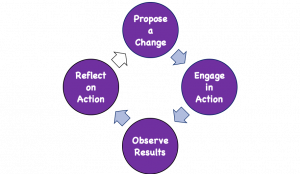
Figure 1.1 Basic action research cycle
There are many other models that supplement the basic process of action research with other aspects of the research process to consider. For example, figure 1.2 illustrates a spiral model of action research proposed by Kemmis and McTaggart (2004). The spiral model emphasizes the cyclical process that moves beyond the initial plan for change. The spiral model also emphasizes revisiting the initial plan and revising based on the initial cycle of research:

Figure 1.2 Interpretation of action research spiral, Kemmis and McTaggart (2004, p. 595)
Other models of action research reorganize the process to emphasize the distinct ways knowledge takes shape in the reflection process. O’Leary’s (2004, p. 141) model, for example, recognizes that the research may take shape in the classroom as knowledge emerges from the teacher’s observations. O’Leary highlights the need for action research to be focused on situational understanding and implementation of action, initiated organically from real-time issues:
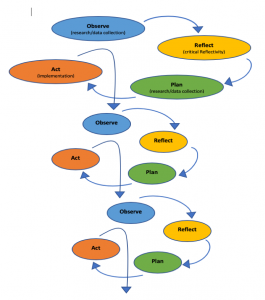
Figure 1.3 Interpretation of O’Leary’s cycles of research, O’Leary (2000, p. 141)
Lastly, Macintyre’s (2000, p. 1) model, offers a different characterization of the action research process. Macintyre emphasizes a messier process of research with the initial reflections and conclusions as the benchmarks for guiding the research process. Macintyre emphasizes the flexibility in planning, acting, and observing stages to allow the process to be naturalistic. Our interpretation of Macintyre process is below:
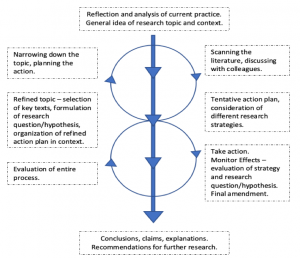
Figure 1.4 Interpretation of the action research cycle, Macintyre (2000, p. 1)
We believe it is important to prioritize the flexibility of the process, and encourage you to only use these models as basic guides for your process. Your process may look similar, or you may diverge from these models as you better understand your students, context, and data.
Definitions of Action Research and Examples
At this point, it may be helpful for readers to have a working definition of action research and some examples to illustrate the methodology in the classroom. Bassey (1998, p. 93) offers a very practical definition and describes “action research as an inquiry which is carried out in order to understand, to evaluate and then to change, in order to improve educational practice.” Cohen and Manion (1994, p. 192) situate action research differently, and describe action research as emergent, writing:
essentially an on-the-spot procedure designed to deal with a concrete problem located in an immediate situation. This means that ideally, the step-by-step process is constantly monitored over varying periods of time and by a variety of mechanisms (questionnaires, diaries, interviews and case studies, for example) so that the ensuing feedback may be translated into modifications, adjustment, directional changes, redefinitions, as necessary, so as to bring about lasting benefit to the ongoing process itself rather than to some future occasion.
Lastly, Koshy (2010, p. 9) describes action research as:
a constructive inquiry, during which the researcher constructs his or her knowledge of specific issues through planning, acting, evaluating, refining and learning from the experience. It is a continuous learning process in which the researcher learns and also shares the newly generated knowledge with those who may benefit from it.
These definitions highlight the distinct features of action research and emphasize the purposeful intent of action researchers to improve, refine, reform, and problem-solve issues in their educational context. To better understand the distinctness of action research, these are some examples of action research topics:
Examples of Action Research Topics
- Flexible seating in 4th grade classroom to increase effective collaborative learning.
- Structured homework protocols for increasing student achievement.
- Developing a system of formative feedback for 8th grade writing.
- Using music to stimulate creative writing.
- Weekly brown bag lunch sessions to improve responses to PD from staff.
- Using exercise balls as chairs for better classroom management.
Action Research in Theory
Action research-based inquiry in educational contexts and classrooms involves distinct participants – students, teachers, and other educational stakeholders within the system. All of these participants are engaged in activities to benefit the students, and subsequently society as a whole. Action research contributes to these activities and potentially enhances the participants’ roles in the education system. Participants’ roles are enhanced based on two underlying principles:
- communities, schools, and classrooms are sites of socially mediated actions, and action research provides a greater understanding of self and new knowledge of how to negotiate these socially mediated environments;
- communities, schools, and classrooms are part of social systems in which humans interact with many cultural tools, and action research provides a basis to construct and analyze these interactions.
In our quest for knowledge and understanding, we have consistently analyzed human experience over time and have distinguished between types of reality. Humans have constantly sought “facts” and “truth” about reality that can be empirically demonstrated or observed.
Social systems are based on beliefs, and generally, beliefs about what will benefit the greatest amount of people in that society. Beliefs, and more specifically the rationale or support for beliefs, are not always easy to demonstrate or observe as part of our reality. Take the example of an English Language Arts teacher who prioritizes argumentative writing in her class. She believes that argumentative writing demonstrates the mechanics of writing best among types of writing, while also providing students a skill they will need as citizens and professionals. While we can observe the students writing, and we can assess their ability to develop a written argument, it is difficult to observe the students’ understanding of argumentative writing and its purpose in their future. This relates to the teacher’s beliefs about argumentative writing; we cannot observe the real value of the teaching of argumentative writing. The teacher’s rationale and beliefs about teaching argumentative writing are bound to the social system and the skills their students will need to be active parts of that system. Therefore, our goal through action research is to demonstrate the best ways to teach argumentative writing to help all participants understand its value as part of a social system.
The knowledge that is conveyed in a classroom is bound to, and justified by, a social system. A postmodernist approach to understanding our world seeks knowledge within a social system, which is directly opposed to the empirical or positivist approach which demands evidence based on logic or science as rationale for beliefs. Action research does not rely on a positivist viewpoint to develop evidence and conclusions as part of the research process. Action research offers a postmodernist stance to epistemology (theory of knowledge) and supports developing questions and new inquiries during the research process. In this way action research is an emergent process that allows beliefs and decisions to be negotiated as reality and meaning are being constructed in the socially mediated space of the classroom.
Theorizing Action Research for the Classroom
All research, at its core, is for the purpose of generating new knowledge and contributing to the knowledge base of educational research. Action researchers in the classroom want to explore methods of improving their pedagogy and practice. The starting place of their inquiry stems from their pedagogy and practice, so by nature the knowledge created from their inquiry is often contextually specific to their classroom, school, or community. Therefore, we should examine the theoretical underpinnings of action research for the classroom. It is important to connect action research conceptually to experience; for example, Levin and Greenwood (2001, p. 105) make these connections:
- Action research is context bound and addresses real life problems.
- Action research is inquiry where participants and researchers cogenerate knowledge through collaborative communicative processes in which all participants’ contributions are taken seriously.
- The meanings constructed in the inquiry process lead to social action or these reflections and action lead to the construction of new meanings.
- The credibility/validity of action research knowledge is measured according to whether the actions that arise from it solve problems (workability) and increase participants’ control over their own situation.
Educators who engage in action research will generate new knowledge and beliefs based on their experiences in the classroom. Let us emphasize that these are all important to you and your work, as both an educator and researcher. It is these experiences, beliefs, and theories that are often discounted when more official forms of knowledge (e.g., textbooks, curriculum standards, districts standards) are prioritized. These beliefs and theories based on experiences should be valued and explored further, and this is one of the primary purposes of action research in the classroom. These beliefs and theories should be valued because they were meaningful aspects of knowledge constructed from teachers’ experiences. Developing meaning and knowledge in this way forms the basis of constructivist ideology, just as teachers often try to get their students to construct their own meanings and understandings when experiencing new ideas.
Classroom Teachers Constructing their Own Knowledge
Most of you are probably at least minimally familiar with constructivism, or the process of constructing knowledge. However, what is constructivism precisely, for the purposes of action research? Many scholars have theorized constructivism and have identified two key attributes (Koshy, 2010; von Glasersfeld, 1987):
- Knowledge is not passively received, but actively developed through an individual’s cognition;
- Human cognition is adaptive and finds purpose in organizing the new experiences of the world, instead of settling for absolute or objective truth.
Considering these two attributes, constructivism is distinct from conventional knowledge formation because people can develop a theory of knowledge that orders and organizes the world based on their experiences, instead of an objective or neutral reality. When individuals construct knowledge, there are interactions between an individual and their environment where communication, negotiation and meaning-making are collectively developing knowledge. For most educators, constructivism may be a natural inclination of their pedagogy. Action researchers have a similar relationship to constructivism because they are actively engaged in a process of constructing knowledge. However, their constructions may be more formal and based on the data they collect in the research process. Action researchers also are engaged in the meaning making process, making interpretations from their data. These aspects of the action research process situate them in the constructivist ideology. Just like constructivist educators, action researchers’ constructions of knowledge will be affected by their individual and professional ideas and values, as well as the ecological context in which they work (Biesta & Tedder, 2006). The relations between constructivist inquiry and action research is important, as Lincoln (2001, p. 130) states:
much of the epistemological, ontological, and axiological belief systems are the same or similar, and methodologically, constructivists and action researchers work in similar ways, relying on qualitative methods in face-to-face work, while buttressing information, data and background with quantitative method work when necessary or useful.
While there are many links between action research and educators in the classroom, constructivism offers the most familiar and practical threads to bind the beliefs of educators and action researchers.
Epistemology, Ontology, and Action Research
It is also important for educators to consider the philosophical stances related to action research to better situate it with their beliefs and reality. When researchers make decisions about the methodology they intend to use, they will consider their ontological and epistemological stances. It is vital that researchers clearly distinguish their philosophical stances and understand the implications of their stance in the research process, especially when collecting and analyzing their data. In what follows, we will discuss ontological and epistemological stances in relation to action research methodology.
Ontology, or the theory of being, is concerned with the claims or assumptions we make about ourselves within our social reality – what do we think exists, what does it look like, what entities are involved and how do these entities interact with each other (Blaikie, 2007). In relation to the discussion of constructivism, generally action researchers would consider their educational reality as socially constructed. Social construction of reality happens when individuals interact in a social system. Meaningful construction of concepts and representations of reality develop through an individual’s interpretations of others’ actions. These interpretations become agreed upon by members of a social system and become part of social fabric, reproduced as knowledge and beliefs to develop assumptions about reality. Researchers develop meaningful constructions based on their experiences and through communication. Educators as action researchers will be examining the socially constructed reality of schools. In the United States, many of our concepts, knowledge, and beliefs about schooling have been socially constructed over the last hundred years. For example, a group of teachers may look at why fewer female students enroll in upper-level science courses at their school. This question deals directly with the social construction of gender and specifically what careers females have been conditioned to pursue. We know this is a social construction in some school social systems because in other parts of the world, or even the United States, there are schools that have more females enrolled in upper level science courses than male students. Therefore, the educators conducting the research have to recognize the socially constructed reality of their school and consider this reality throughout the research process. Action researchers will use methods of data collection that support their ontological stance and clarify their theoretical stance throughout the research process.
Koshy (2010, p. 23-24) offers another example of addressing the ontological challenges in the classroom:
A teacher who was concerned with increasing her pupils’ motivation and enthusiasm for learning decided to introduce learning diaries which the children could take home. They were invited to record their reactions to the day’s lessons and what they had learnt. The teacher reported in her field diary that the learning diaries stimulated the children’s interest in her lessons, increased their capacity to learn, and generally improved their level of participation in lessons. The challenge for the teacher here is in the analysis and interpretation of the multiplicity of factors accompanying the use of diaries. The diaries were taken home so the entries may have been influenced by discussions with parents. Another possibility is that children felt the need to please their teacher. Another possible influence was that their increased motivation was as a result of the difference in style of teaching which included more discussions in the classroom based on the entries in the dairies.
Here you can see the challenge for the action researcher is working in a social context with multiple factors, values, and experiences that were outside of the teacher’s control. The teacher was only responsible for introducing the diaries as a new style of learning. The students’ engagement and interactions with this new style of learning were all based upon their socially constructed notions of learning inside and outside of the classroom. A researcher with a positivist ontological stance would not consider these factors, and instead might simply conclude that the dairies increased motivation and interest in the topic, as a result of introducing the diaries as a learning strategy.
Epistemology, or the theory of knowledge, signifies a philosophical view of what counts as knowledge – it justifies what is possible to be known and what criteria distinguishes knowledge from beliefs (Blaikie, 1993). Positivist researchers, for example, consider knowledge to be certain and discovered through scientific processes. Action researchers collect data that is more subjective and examine personal experience, insights, and beliefs.
Action researchers utilize interpretation as a means for knowledge creation. Action researchers have many epistemologies to choose from as means of situating the types of knowledge they will generate by interpreting the data from their research. For example, Koro-Ljungberg et al., (2009) identified several common epistemologies in their article that examined epistemological awareness in qualitative educational research, such as: objectivism, subjectivism, constructionism, contextualism, social epistemology, feminist epistemology, idealism, naturalized epistemology, externalism, relativism, skepticism, and pluralism. All of these epistemological stances have implications for the research process, especially data collection and analysis. Please see the table on pages 689-90, linked below for a sketch of these potential implications:
Again, Koshy (2010, p. 24) provides an excellent example to illustrate the epistemological challenges within action research:
A teacher of 11-year-old children decided to carry out an action research project which involved a change in style in teaching mathematics. Instead of giving children mathematical tasks displaying the subject as abstract principles, she made links with other subjects which she believed would encourage children to see mathematics as a discipline that could improve their understanding of the environment and historic events. At the conclusion of the project, the teacher reported that applicable mathematics generated greater enthusiasm and understanding of the subject.
The educator/researcher engaged in action research-based inquiry to improve an aspect of her pedagogy. She generated knowledge that indicated she had improved her students’ understanding of mathematics by integrating it with other subjects – specifically in the social and ecological context of her classroom, school, and community. She valued constructivism and students generating their own understanding of mathematics based on related topics in other subjects. Action researchers working in a social context do not generate certain knowledge, but knowledge that emerges and can be observed and researched again, building upon their knowledge each time.
Researcher Positionality in Action Research
In this first chapter, we have discussed a lot about the role of experiences in sparking the research process in the classroom. Your experiences as an educator will shape how you approach action research in your classroom. Your experiences as a person in general will also shape how you create knowledge from your research process. In particular, your experiences will shape how you make meaning from your findings. It is important to be clear about your experiences when developing your methodology too. This is referred to as researcher positionality. Maher and Tetreault (1993, p. 118) define positionality as:
Gender, race, class, and other aspects of our identities are markers of relational positions rather than essential qualities. Knowledge is valid when it includes an acknowledgment of the knower’s specific position in any context, because changing contextual and relational factors are crucial for defining identities and our knowledge in any given situation.
By presenting your positionality in the research process, you are signifying the type of socially constructed, and other types of, knowledge you will be using to make sense of the data. As Maher and Tetreault explain, this increases the trustworthiness of your conclusions about the data. This would not be possible with a positivist ontology. We will discuss positionality more in chapter 6, but we wanted to connect it to the overall theoretical underpinnings of action research.
Advantages of Engaging in Action Research in the Classroom
In the following chapters, we will discuss how action research takes shape in your classroom, and we wanted to briefly summarize the key advantages to action research methodology over other types of research methodology. As Koshy (2010, p. 25) notes, action research provides useful methodology for school and classroom research because:
Advantages of Action Research for the Classroom
- research can be set within a specific context or situation;
- researchers can be participants – they don’t have to be distant and detached from the situation;
- it involves continuous evaluation and modifications can be made easily as the project progresses;
- there are opportunities for theory to emerge from the research rather than always follow a previously formulated theory;
- the study can lead to open-ended outcomes;
- through action research, a researcher can bring a story to life.
Action Research Copyright © by J. Spencer Clark; Suzanne Porath; Julie Thiele; and Morgan Jobe is licensed under a Creative Commons Attribution-NonCommercial 4.0 International License , except where otherwise noted.
Share This Book
- Toggle Accessibility Statement
- Skip to Main Content
DO 39, s. 2016 – Adoption of the Basic Education Research Agenda
- The Department of Education (DepEd) adopts the enclosed Basic Education Research Agenda which provides guidance to DepEd and its stakeholders in the conduct of education research and in the utilization of research results to inform the Department’s planning, policy, and program development aligned with its vision, mission, and core values.
- The Research Agenda shall build on gains from existing research, generate new knowledge on priority research areas, focus DepEd’s attention on relevant education issues, and maximize available resources for research within and outside the Department.
- All DepEd Orders and other related issuances, rules and regulations, and provisions which are inconsistent with this policy are hereby repealed, rescinded or modified accordingly.
- Immediate dissemination of and strict compliance with this Order is directed.
Suggestions or feedback?
MIT News | Massachusetts Institute of Technology
- Machine learning
- Social justice
- Black holes
- Classes and programs
Departments
- Aeronautics and Astronautics
- Brain and Cognitive Sciences
- Architecture
- Political Science
- Mechanical Engineering
Centers, Labs, & Programs
- Abdul Latif Jameel Poverty Action Lab (J-PAL)
- Picower Institute for Learning and Memory
- Lincoln Laboratory
- School of Architecture + Planning
- School of Engineering
- School of Humanities, Arts, and Social Sciences
- Sloan School of Management
- School of Science
- MIT Schwarzman College of Computing
Study models how ketamine’s molecular action leads to its effects on the brain
Press contact :.

Previous image Next image
Ketamine, a World Health Organization Essential Medicine, is widely used at varying doses for sedation, pain control, general anesthesia, and as a therapy for treatment-resistant depression. While scientists know its target in brain cells and have observed how it affects brain-wide activity, they haven’t known entirely how the two are connected. A new study by a research team spanning four Boston-area institutions uses computational modeling of previously unappreciated physiological details to fill that gap and offer new insights into how ketamine works.
“This modeling work has helped decipher likely mechanisms through which ketamine produces altered arousal states as well as its therapeutic benefits for treating depression,” says co-senior author Emery N. Brown , the Edward Hood Taplin Professor of Computational Neuroscience and Medical Engineering at The Picower Institute for Learning and Memory at MIT, as well as an anesthesiologist at Massachusetts General Hospital and a professor at Harvard Medical School.
The researchers from MIT, Boston University (BU), MGH, and Harvard University say the predictions of their model, published May 20 in Proceedings of the National Academy of Sciences , could help physicians make better use of the drug.
“When physicians understand what's mechanistically happening when they administer a drug, they can possibly leverage that mechanism and manipulate it,” says study lead author Elie Adam , a research scientist at MIT who will soon join the Harvard Medical School faculty and launch a lab at MGH. “They gain a sense of how to enhance the good effects of the drug and how to mitigate the bad ones.”
Blocking the door
The core advance of the study involved biophysically modeling what happens when ketamine blocks the “NMDA” receptors in the brain’s cortex — the outer layer where key functions such as sensory processing and cognition take place. Blocking the NMDA receptors modulates the release of excitatory neurotransmitter glutamate.
When the neuronal channels (or doorways) regulated by the NMDA receptors open, they typically close slowly (like a doorway with a hydraulic closer that keeps it from slamming), allowing ions to go in and out of neurons, thereby regulating their electrical properties, Adam says. But, the channels of the receptor can be blocked by a molecule. Blocking by magnesium helps to naturally regulate ion flow. Ketamine, however, is an especially effective blocker.
Blocking slows the voltage build-up across the neuron’s membrane that eventually leads a neuron to “spike,” or send an electrochemical message to other neurons. The NMDA doorway becomes unblocked when the voltage gets high. This interdependence between voltage, spiking, and blocking can equip NMDA receptors with faster activity than its slow closing speed might suggest. The team’s model goes further than ones before by representing how ketamine’s blocking and unblocking affect neural activity.
“Physiological details that are usually ignored can sometimes be central to understanding cognitive phenomena,” says co-corresponding author Nancy Kopell , a professor of mathematics at BU. “The dynamics of NMDA receptors have more impact on network dynamics than has previously been appreciated.”
With their model, the scientists simulated how different doses of ketamine affecting NMDA receptors would alter the activity of a model brain network. The simulated network included key neuron types found in the cortex: one excitatory type and two inhibitory types. It distinguishes between “tonic” interneurons that tamp down network activity and “phasic” interneurons that react more to excitatory neurons.
The team’s simulations successfully recapitulated the real brain waves that have been measured via EEG electrodes on the scalp of a human volunteer who received various ketamine doses and the neural spiking that has been measured in similarly treated animals that had implanted electrode arrays. At low doses, ketamine increased brain wave power in the fast gamma frequency range (30-40 Hz). At the higher doses that cause unconsciousness, those gamma waves became periodically interrupted by “down” states where only very slow frequency delta waves occur. This repeated disruption of the higher frequency waves is what can disrupt communication across the cortex enough to disrupt consciousness.

Previous item Next item
But how? Key findings
Importantly, through simulations, they explained several key mechanisms in the network that would produce exactly these dynamics.
The first prediction is that ketamine can disinhibit network activity by shutting down certain inhibitory interneurons. The modeling shows that natural blocking and unblocking kinetics of NMDA-receptors can let in a small current when neurons are not spiking. Many neurons in the network that are at the right level of excitation would rely on this current to spontaneously spike. But when ketamine impairs the kinetics of the NMDA receptors, it quenches that current, leaving these neurons suppressed. In the model, while ketamine equally impairs all neurons, it is the tonic inhibitory neurons that get shut down because they happen to be at that level of excitation. This releases other neurons, excitatory or inhibitory, from their inhibition allowing them to spike vigorously and leading to ketamine’s excited brain state. The network’s increased excitation can then enable quick unblocking (and reblocking) of the neurons’ NMDA receptors, causing bursts of spiking.
Another prediction is that these bursts become synchronized into the gamma frequency waves seen with ketamine. How? The team found that the phasic inhibitory interneurons become stimulated by lots of input of the neurotransmitter glutamate from the excitatory neurons and vigorously spike, or fire. When they do, they send an inhibitory signal of the neurotransmitter GABA to the excitatory neurons that squelches the excitatory firing, almost like a kindergarten teacher calming down a whole classroom of excited children. That stop signal, which reaches all the excitatory neurons simultaneously, only lasts so long, ends up synchronizing their activity, producing a coordinated gamma brain wave.
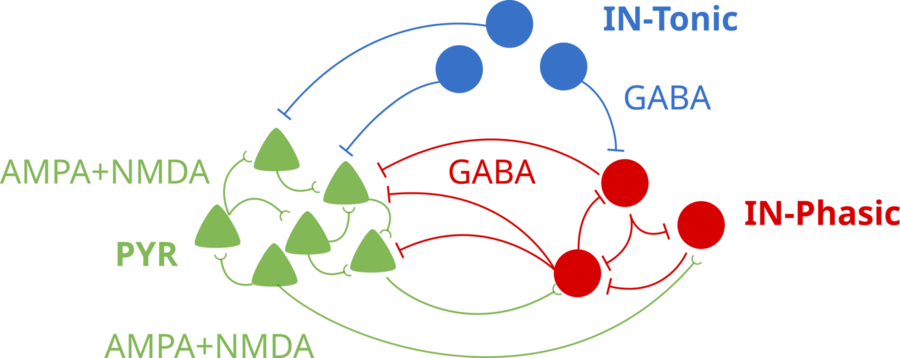
“The finding that an individual synaptic receptor (NMDA) can produce gamma oscillations and that these gamma oscillations can influence network-level gamma was unexpected,” says co-corresponding author Michelle McCarthy , a research assistant professor of math at BU. “This was found only by using a detailed physiological model of the NMDA receptor. This level of physiological detail revealed a gamma time scale not usually associated with an NMDA receptor.”
So what about the periodic down states that emerge at higher, unconsciousness-inducing ketamine doses? In the simulation, the gamma-frequency activity of the excitatory neurons can’t be sustained for too long by the impaired NMDA-receptor kinetics. The excitatory neurons essentially become exhausted under GABA inhibition from the phasic interneurons. That produces the down state. But then, after they have stopped sending glutamate to the phasic interneurons, those cells stop producing their inhibitory GABA signals. That enables the excitatory neurons to recover, starting a cycle anew.
Antidepressant connection?
The model makes another prediction that might help explain how ketamine exerts its antidepressant effects. It suggests that the increased gamma activity of ketamine could entrain gamma activity among neurons expressing a peptide called VIP. This peptide has been found to have health-promoting effects, such as reducing inflammation, that last much longer than ketamine’s effects on NMDA receptors. The research team proposes that the entrainment of these neurons under ketamine could increase the release of the beneficial peptide, as observed when these cells are stimulated in experiments. This also hints at therapeutic features of ketamine that may go beyond antidepressant effects. The research team acknowledges, however, that this connection is speculative and awaits specific experimental validation.
“The understanding that the subcellular details of the NMDA receptor can lead to increased gamma oscillations was the basis for a new theory about how ketamine may work for treating depression,” Kopell says.
Additional co-authors of the study are Marek Kowalski, Oluwaseun Akeju, and Earl K. Miller.
The work was supported by the JPB Foundation; The Picower Institute for Learning and Memory; The Simons Center for The Social Brain; the National Institutes of Health; George J. Elbaum ’59, SM ’63, PhD ’67; Mimi Jensen; Diane B. Greene SM ’78; Mendel Rosenblum; Bill Swanson; and annual donors to the Anesthesia Initiative Fund.
Share this news article on:
Related links.
- Institute for Medical Engineering and Science
- The Picower Institute for Learning and Memory
- Department of Brain and Cognitive Sciences
Related Topics
- Pharmaceuticals
- Neuroscience
- Brain and cognitive sciences
- Health sciences and technology
- Health care
- Picower Institute
- Institute for Medical Engineering and Science (IMES)
Related Articles

Anesthesia technology precisely controls unconsciousness in animal tests
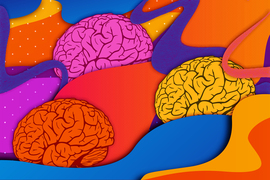
Study finds tracking brain waves could reduce post-op complications

3 Questions: Emery Brown on improving anesthesia with neuroscience

Statistical model defines ketamine anesthesia’s effects on the brain
More mit news.

Researchers demonstrate the first chip-based 3D printer
Read full story →

Exotic black holes could be a byproduct of dark matter
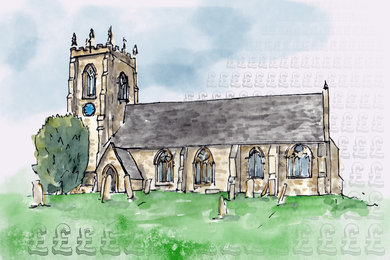
The unexpected origins of a modern finance tool

Nuh Gedik receives 2024 National Brown Investigator Award
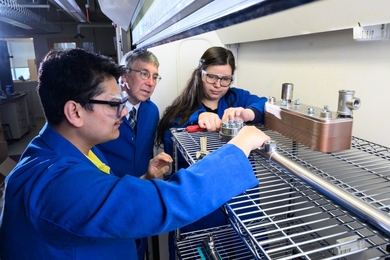
Reducing carbon emissions from long-haul trucks

Mouth-based touchpad enables people living with paralysis to interact with computers
- More news on MIT News homepage →
Massachusetts Institute of Technology 77 Massachusetts Avenue, Cambridge, MA, USA
- Map (opens in new window)
- Events (opens in new window)
- People (opens in new window)
- Careers (opens in new window)
- Accessibility
- Social Media Hub
- MIT on Facebook
- MIT on YouTube
- MIT on Instagram

IMAGES
VIDEO
COMMENTS
DepEd Action Research is a process of systematic, reflective inquiry to improve educational practices or resolve problems in any operating unit (i.e. school, classroom, office). The research topic/area should be taken from Basic Education Research Agenda under the following themes: teaching and learning, child protection, human resource ...
d Action Research Methods; e Work Plan and Timelines; f Cost Estimates; and g Plans for Dissemination and Utilization. Parts of the Action Research Proposal should be related to and supportive of each other and appropriate for the research question(s). The following are broad ideas from which potential Action Research topics can be derived for ...
Action Research. Document No. Research Title. Author. Date Posted. View. SDO-RES 372.4072 M236 2023. Reading Comprehension of Incoming Grade VI Pupils through Lyrics of Selected Disney Musical Songs (RCGP-LSDMS) Our Lady of Lourdes Elementary School. JOSHUA L. MALABANAN MECHAEL ANGELO B. YUSON MARICEL M. MAHUSAY.
Home » DepEd Resources » DepEd Action Research Topics and Sample Titles DepEd Action Research Our or Sample Labels. by Mark Anton Llego. DepEd Activity Research is a process of systematic, reflective inquiry go improve educational practices or resolve trouble in any operating unit (i.e. school, classroom, office). ...
Sample Deped Action Research Topics and Titles - Free download as Word Doc (.doc / .docx), PDF File (.pdf), Text File (.txt) or read online for free. This document provides a list of over 50 potential topics and titles for action research projects in the Philippines. The topics cover a wide range of subject areas including mathematics, English, science, and social studies.
DepEd Action Research Topics and Sample Titles. Teacher Quality as a Key Factor Influencing Student Learning Outcomes. DepEd Supplemental Research Guides and Tools. DepEd School Research Manager Duties and Responsibilities. In addition, several books and articles can help you learn more about action research. These resources will provide an ...
by Mark Anthony Llego. Sample Action Research courtesy of Sir Kenneth D. Hernandez,CAR-PhD. (Admin TeacherPH Facebook Group) This is my promised Action Research by one of the teachers at Victoria Reyes Elementary School. Notice that it was conducted only for a week and the Statistics used are very simple yet the interpretation is meaty.
Step 2:Read, Research, Reflect. Framing a good question. Avoid yes or no questions. Avoid questions to which you already know the answer. A good question is. free of educational jargons, use simple everyday words, do not prejudge the result. Characteristics of Good Research Questions.
Adoption of the Basic Education Research Agenda. DepEd Order No. 39 s. 2016. Department of Education. 2017. Supplemental Research Guides and Tools. DepEd Memorandum No. 144 s. 2017. ... In generating topics for Action Research, you can focus on some specific least learned competencies such as adding fractions, writing effective sentences, and ...
GUIDELINES IN WRITING THE ACTION RESEARCH 1. Use a short white folder. Below is the cover page. DepEd Letter head ACTION RESEARCH PROPOSAL ON ? (Title) Prepared by: JUAN DE LA CRUZ Master Teacher I Researcher 2. Second page are the signatories 3. Before you write an action research, think of a problem that exist in your school/classroom.
ACTION RESEARCH Session 6.1 Perparing the Action Research Proposal 6 2 You may also mention any data or current research in the area of your topic and highlight the gap that you plan to address in the Action Research. 3 It is also here that you cite any theory, related studies, DepEd policies, or laws that would strengthen your claims about the intervention or treatment that you
Action Research samples. Action Research is a critical factor in our Individual Performance Commitment Review Form (IPCRF). We tried to share to our fellow K-12 teachers our latest, updated and relevant Action Research samples that will help us address the gap in the teaching-learning process inside the classroom and make it available to our fellow K-12 teachers and help them update their ...
Abstract. This action research aimed to improve the mathematics performance of 56 Grade 11 students of Buug National High School students. Thirty-one or 55% scored the average and poor level of ...
DepEd Action Research is a process of systematic, reflective inquiry to improve educational practices or resolve problems in any operating unit (i.e. school, classroom, office). The research topic/area should be taken from Basic Education Research Agenda under the following themes: teaching and learning, child protection, human resource ...
JULY 05, 2022 RM 779, s. 2022 - List of Approved Action and Basic Research Proposals for the 2022 Basic Education Research (BERF) Grant Posted on July 7, 2022 by Mikko Duero RM-s2022-779 Download
DepEd hereby establishes the Research Management Guidelines (RMG) to provide guidance in managing research initiatives in the national, regional, schools division, and school levels. The enclosed policy also improves support mechanisms for research such as funding, partnerships, and capacity building. This policy which is built on the gains in ...
Action / Applied Research Topics for DepEd School Heads, Teaching & Non-Teaching Personnel based on DepEd Order No. 39, s. 2016Download DepEd Order No. 39, s...
Sample Deped Action Research Topics and Titles - Free download as Word Doc (.doc / .docx), PDF File (.pdf), Text File (.txt) or read online for free. This document provides a list of over 100 potential action research topic ideas and titles focused on issues in education. The topics cover a wide range of subject areas including mathematics, English, science, social studies, and teaching methods.
Action research is a process for improving educational practice. Its methods involve action, evaluation, and reflection. It is a process to gather evidence to implement change in practices. Action research is participative and collaborative. It is undertaken by individuals with a common purpose.
for good Action Research questions; formulate Action Research question/s and corresponding hypotheses; and evaluate the quality of Action Research questions based on the DepEd's 'Research Management Guidelines.'" Activity 1 (15 minutes) Lead the conduct of the activity called "Describe Me." Observe the following steps.
Abstract. Many teachers in the Department of Education (DepEd), both elementary and secondary schools, continue to be uninterested in conducting action research despite the DepEd's efforts to ...
The Department of Education (DepEd) adopts the enclosed Basic Education Research Agenda which provides guidance to DepEd and its stakeholders in the conduct of education research and in the utilization of research results to inform the Department's planning, policy, and program development aligned with its vision, mission, and core values.
"The finding that an individual synaptic receptor (NMDA) can produce gamma oscillations and that these gamma oscillations can influence network-level gamma was unexpected," says co-corresponding author Michelle McCarthy, a research assistant professor of math at BU."This was found only by using a detailed physiological model of the NMDA receptor.
Research on voter behavior suggests that the verdict will just harden partisan loyalties. Trump supporters at a campaign rally in the South Bronx on May 23. Yuki Iwamura/Associated Press